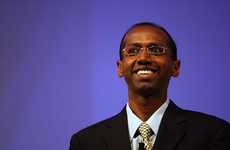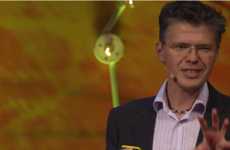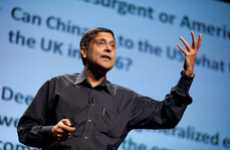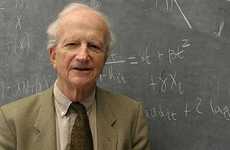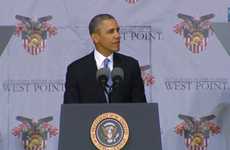
Need Inspiration?
Get inspired by 4,000+ keynote speaker videos & our founder, a top keynote speaker on innovation.
Rana Mitter's China Talk Looks at a Country Full of Contradictions
Joey Haar — June 21, 2017 — Keynote Trends
References: talksat.withgoogle
With a culture and society so dramatically different from those of nations to its west, China has always been something of a sibylline anomaly for those who've never lived there and immersed themselves in it, and Professor Rana Mitter's China talk is designed to help those people gain some understanding. Of course, one short talk is far from enough to give a comprehensive assessment of a massive world power, but as Professor of the History and Politics of Modern China, Mitter is in a position to provide at least a shred of insight.
Mitter notes that at its core, China presents something of a paradox (especially when compared against the structure of the liberal democratic countries that make up the western world.) That's because China is a simultaneously open yet non-liberal nation. Many people assume China is very closed off — an assumption tainted by Cold War, anti-Mao propaganda — but this is not the case. China is tremendously open: its citizens are avid travelers; its businesses send capital, goods, and services all around the world; and its worldwide cultural impact is tremendous. But despite these traditionally liberal qualities, the nation is staunchly "illiberal," as Mitter puts it. It censors its media, from books to television to film, and any rights afforded to its citizens are framed in terms of the ruling party (q.v. the Communist Party of China.) This core paradox is what makes China enigmatic to the foreign mind.
Mitter notes that at its core, China presents something of a paradox (especially when compared against the structure of the liberal democratic countries that make up the western world.) That's because China is a simultaneously open yet non-liberal nation. Many people assume China is very closed off — an assumption tainted by Cold War, anti-Mao propaganda — but this is not the case. China is tremendously open: its citizens are avid travelers; its businesses send capital, goods, and services all around the world; and its worldwide cultural impact is tremendous. But despite these traditionally liberal qualities, the nation is staunchly "illiberal," as Mitter puts it. It censors its media, from books to television to film, and any rights afforded to its citizens are framed in terms of the ruling party (q.v. the Communist Party of China.) This core paradox is what makes China enigmatic to the foreign mind.
3.1
Score
Popularity
Activity
Freshness


